Post by Sarah Kaabar
In light of this week’s lecture topic about the relationship of In-House Counsel and professional sports, I found it necessary to post about the turn of events that occurred this weekend in regard to Don Cherry.
Don Cherry was fired on Monday November 11th by Sportsnet due to his comments he made on Saturday November 9th on Hockey Night Canada. Sportnet confirmed that Don Cherry’s comments were offensive to Canadians and and do not represent the values of what Sportnet stands for.
What is interesting in this situation is I presume that the general counsel for Rogers Communication (owner of Sportsnet) advised the decision makers of Sportsnet to fire Don Cherry because of various factors. First, the public backlash was extreme (it apparently overloaded the internal motherboard of the The Canadian Broadcasting Standards Council); politicians such as Jagmeet Singh and other prominent individuals condemned the comments from Cherry; keyboard warriors and twitter/instagram/tiktok/youtube/facebook and all other social media platforms took off with this story and threatened to stop supporting Sportsnet; and overall this was sufficient grounds to fire Cherry.
If I was general counsel of Rogers Communications, I would be worried about how Cherry’s comments could potentially affect the ratings of Sportsnet, which can have domino effects on sponsorship opportunities, broadcasting deals, and overall brand recognition. Rogers already gets enough complaints on their phone plans (*from me occasionally*), this is why from a business perspective Rogers Communications had no other choice to fire Cherry for the sake of their business.
In this video here https://www.youtube.com/watch?v=N0tQMiecfTE , the lawyer highlights really well the fundamental mistake society makes in confusing freedom of speech vs freedom of consequences from a workplace perspective. At the end of the day, my speculation is that Rogers Communications did not want to fire 85 year old Don Cherry who has been with them for 40 years, because if they did they would of done so a long ago since Cherry has a history of making a whole array of offensive comments during Hockey Night segments (https://www.ctvnews.ca/sports/don-cherry-s-history-of-controversial-comments-1.4680505) .
However, because these offensive comments “caught wind” and propelled throughout social media, I suspect general counsel for Rogers Communications advised the decision makers that in order to protect shareholders money and the company’s brand, it was necessary to fire Don Cherry. Also (again from a general counsel perspective) perhaps due to his age Rogers Communications knew he may decide to retire from this segment within the next few years and therefore they decided this was also the right time to rebrand the segment or try something new (not sure about that.. just a thought).


